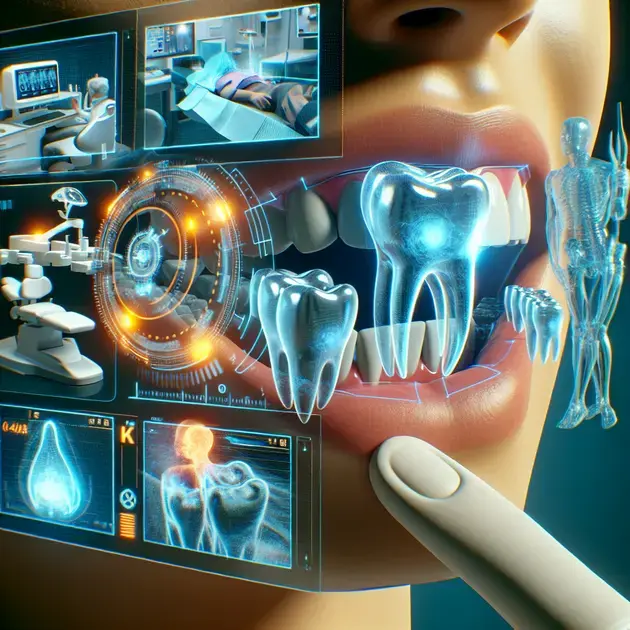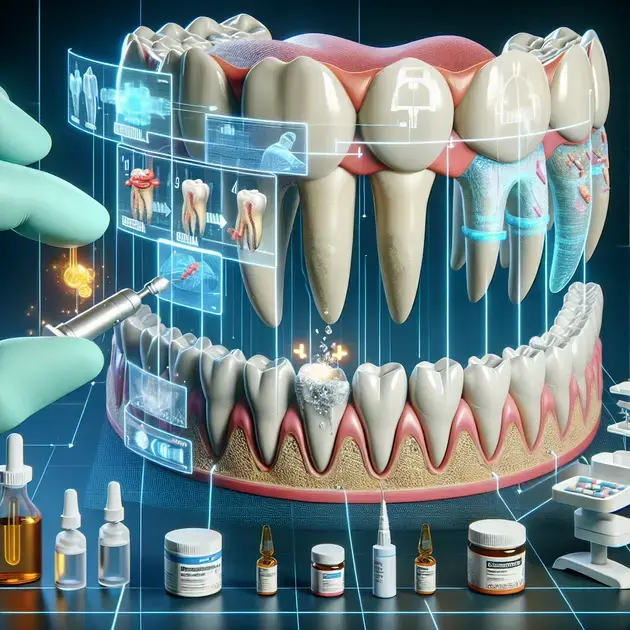When it comes to combating periodontitis, finding the most effective medication is crucial. In this comprehensive guide, we will explore the latest advancements and treatments available to help manage and treat this common dental condition.
Periodontitis, a severe form of gum disease, affects millions of individuals worldwide. With the right medication and proper oral hygiene practices, it is possible to improve your oral health and prevent further complications. Let’s dive into the world of effective medication for periodontitis and discover the best solutions for you.

Understanding Periodontitis: Causes and Symptoms
Periodontitis is a serious gum infection that damages the soft tissue and destroys the bone that supports your teeth. One of the primary causes of periodontitis is poor oral hygiene, where bacteria in the form of plaque build up on your teeth and harden into tartar. Other factors that can contribute to periodontitis include smoking, hormonal changes in women, diabetes, medications that reduce saliva flow, and genetic susceptibility.
To understand if you have periodontitis, be on the lookout for symptoms such as swollen or bleeding gums, persistent bad breath, loose teeth, receding gums, and pain while chewing. If you suspect you have periodontitis, it is crucial to visit a dentist for a proper diagnosis and treatment plan.
The Importance of Effective Medication in Periodontitis Treatment
Medication plays a crucial role in the treatment of periodontitis alongside professional dental care. To effectively manage periodontitis, your dentist may prescribe antibiotics to control bacterial infections in the gums and reduce inflammation. One common antibiotic prescribed for periodontitis is doxycycline, which helps to inhibit the enzymes that break down collagen in the gums.
It’s essential to follow your dentist’s instructions carefully when taking medication for periodontitis. Make sure to complete the full course of antibiotics and attend all follow-up appointments to monitor your progress. Additionally, maintaining good oral hygiene habits such as brushing twice a day, flossing daily, and using an antiseptic mouthwash can enhance the effectiveness of the medication.
Choosing the Right Medication for Your Periodontitis Management
When it comes to selecting the right medication for managing periodontitis, it is crucial to consult with your dentist to determine the most suitable option for your specific condition. Your dentist will consider factors such as the severity of your periodontitis, any underlying health conditions you may have, and your medical history before prescribing medication.
Some common medications used in periodontitis treatment include antimicrobial mouthwashes, prescription-strength fluoride toothpaste, and enzyme suppressants. These medications can help control bacterial growth, strengthen tooth enamel, and reduce inflammation in the gums. Your dentist will provide you with detailed instructions on how to use the medication effectively to improve your periodontal health.

Understanding Periodontitis: Causes and Symptoms
Periodontitis is a serious gum infection that damages the soft tissue and destroys the bone that supports your teeth. It is caused by bacteria in plaque, a sticky film that forms on your teeth. If left untreated, periodontitis can lead to tooth loss and other health problems. The main cause of periodontitis is poor oral hygiene, which allows plaque to build up on the teeth and harden into tartar. Other risk factors include smoking, hormonal changes, certain medications, and underlying health conditions like diabetes.
One of the key symptoms of periodontitis is swollen, red, or bleeding gums. You may also experience bad breath, loose teeth, or a change in the way your teeth fit together when you bite. In some cases, periodontitis can be painless, so it is important to have regular dental check-ups to catch any signs of gum disease early. Your dentist can measure the depth of the pockets around your teeth and recommend treatment if necessary.
It is crucial to address the causes of periodontitis to prevent further damage to your oral health. This includes improving your oral hygiene routine by brushing and flossing regularly, quitting smoking, and avoiding sugary foods and drinks. Your dentist may also recommend professional cleanings and, in severe cases, surgical treatments to restore the health of your gums and teeth.
By understanding the causes and symptoms of periodontitis, you can take proactive steps to protect your oral health and prevent the progression of gum disease. Early detection and treatment are key to preserving your teeth and gums for a lifetime of healthy smiles.
The Importance of Effective Medication in Periodontitis Treatment
Medication plays a crucial role in the treatment of periodontitis, as it can help control the infection and reduce inflammation in the gums. Antibiotics are commonly prescribed to combat the bacteria that cause gum disease and prevent further damage to the teeth and bones. These medications may be taken orally or applied directly to the affected areas, depending on the severity of the infection.
In addition to antibiotics, other medications such as antiseptic mouthwashes and topical gels can also be beneficial in managing periodontitis. These products help reduce plaque and tartar buildup, soothe irritated gums, and promote healing in the affected tissues. It is important to follow your dentist’s instructions carefully when using these medications to ensure the best results.
Effective medication can not only treat the symptoms of periodontitis but also address the underlying causes of the infection. By combining medication with good oral hygiene practices and regular dental care, you can improve the health of your gums and prevent further progression of gum disease. Remember to discuss any medications you are taking with your dentist to ensure they are safe and appropriate for your oral health needs.
Choosing the Right Medication for Your Periodontitis Management is essential for achieving positive outcomes and maintaining a healthy smile. Work closely with your dental healthcare provider to develop a personalized treatment plan that includes the most effective medications for your specific condition. With the right medication regimen and a commitment to good oral care, you can successfully manage periodontitis and enjoy a lifetime of optimal oral health.
Conclusion
In conclusion, understanding periodontitis is crucial for maintaining optimal oral health. This serious gum infection, caused by bacteria in plaque, can lead to tooth loss and other health complications if left untreated. By recognizing the causes and symptoms of periodontitis, such as swollen gums and changes in teeth alignment, individuals can take proactive steps to protect their oral health through regular dental check-ups and improved oral hygiene practices. Early detection and treatment are key in preserving dental structures for a lifetime of healthy smiles.
Furthermore, effective medication plays a vital role in periodontitis treatment. Antibiotics, antiseptic mouthwashes, and topical gels can help control the infection, reduce inflammation, and address underlying causes. Combining medication with proper oral care and professional dental interventions can significantly improve gum health and prevent the progression of gum disease. It is important to follow dental recommendations and discuss medications with healthcare providers to ensure safe and appropriate treatment.
Choosing the right medication for periodontitis management is essential for achieving positive outcomes and maintaining oral health. By working closely with dental healthcare providers to develop personalized treatment plans, individuals can effectively manage periodontitis and enjoy a lifetime of optimal oral health. With a commitment to good oral care practices and regular monitoring, individuals can mitigate the risks associated with periodontitis and preserve their teeth and gums for years to come.



